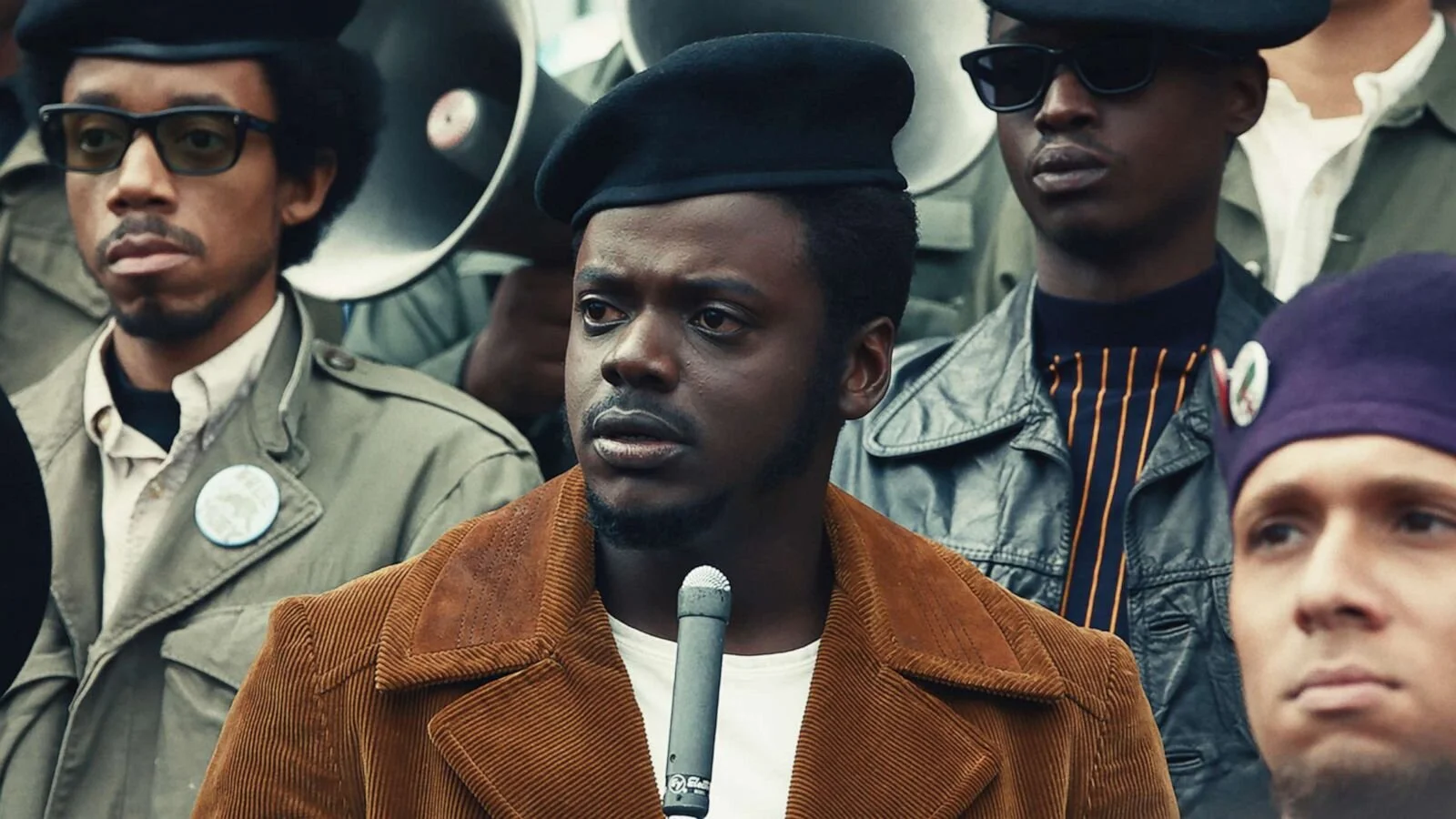Dir: Shaka King
Starring: Daniel Kaluuya, LaKeith Stanfield, Jesse Plemons, Dominique Fishback, and Martin Sheen
TRT: 2 h 6 m
The moment the credits rolled in director Shaka King's impressive "Judas and the Black Messiah," my primary emotion was anger. Heartbroken anger over the many injustices forcefully dealt to people of color throughout America's history. Frustrated anger that progress for equal rights and treatment of people of color doesn't seem too far removed from the feelings found during the 1960s where this film takes place.
If we judge films based on how they can make you feel, whatever emotion that may be, "Judas and the Black Messiah" wins, hands down. But what director Shaka King and co-writer Will Berson do with this remarkable film is provide a form of clarity to a precarious moment in time, through a cinematic lens and with heartfelt, honest, and controlled storytelling. Pulling the past back into the present to clear the fog of time off events and try to bring the focus back to situations history might otherwise try to forget.
The situation focused in "Judas and the Black Messiah" centers on Fred Hampton (Daniel Kaluuya), chairman of the Illinois branch of the Black Panther Party in 1968, and J. Edgar Hoover's (Martin Sheen) paranoia over the rise of African-American militants who he deemed the greatest threat to national security.
Bill O'Neill (LaKeith Stanfield) is a thief who often impersonates an F.B.I. agent to steal cars. After he's caught, an actual agent, Roy Mitchell (Jesse Plemons), recruits O'Neill to invade the Black Panther Party's ranks to take down Hampton and the societal movement he is leading.
Shaka King utilizes two characters, Hampton and O'Neill, to build a tense and provocative story. Betrayal, as the title implies, is the ultimate focus of the story here. A betrayal that reaches beyond just personal ties, showcasing a more tragic and upsetting reality of betrayal, one where America betrays the African-American community. These narrative motivations are always present. During scenes of persecution by authority figures, during moments of peaceful protest, and even in unexpected scenes in fancy restaurants or during intimate moments between two people falling in love. The issues and politics of race are handled deftly by King and Berson throughout the story, layering this historical depiction with subtle and blatant representations of what it was like to be a person of color in an urban community in the 1960s.
LaKeith Stanfield is spectacular in only a way LaKeith Stanfield can be. Examples of this might be the twitchy, nervous, and anxious moments like when two Black Panther organization members interrogate O'Neill. Or the relieved and happy-to-be-paid demeanor when sitting across from Agent Mitchell, a calm yet downright menacing Jesse Plemons, while devouring a steak and snapping his fingers for more wine; Stanfield wholly owns the character with his unique characteristics.
And even with Stanfield's impressive performance, Daniel Kaluuya has an equal amount of shining moments playing the embattled Fred Hampton. It's not the bravado of fiery speeches or the impassioned motivational dialogs he provides his comrades that are most striking for the performance (do not be dissuaded, these moments are memorable). It's the smaller personal moments that give substance to the character. The way Hampton falls in love with fellow activist Deborah Johnson (Dominque Fishback) or the sadness in his eyes when he is forced to watch the world he built crumble through newspaper headlines, the anger he indulges when every small step forward is countered with violent pushback resulting in friends and fellow activists' death. These moments that Kaluuya embraces provides the tragedy and subsequent fury felt when Hampton's fight song comes to an end.
"Judas and the Black Messiah" is a powerful and poignant piece of cinema. Taking a moment in history and shaking off the dust that clouds the underlying sentiments felt during a moment in time, a moment where feelings and attitudes were not so different from what is supposed today. That's the power of filmmaking and its ability to boldly hold a mirror up to the past. Its power to display that anger and frustration felt then, isn't so different from how we feel today. Its power to show that change and hope are worthy and essential to continue to pursue, so that one day that mirror will begin to show the difference made by revolutionary people.
Monte's Rating
4.50 out of 5.00












